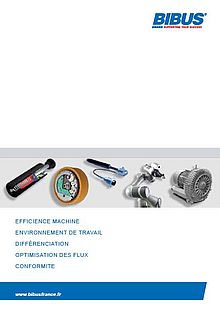Re-industrialisation : "France is facing an enormous moment of opportunity"

France is at a strategic crossroads.
Are we ready to capitalise on #reindustrialisation opportunities
while facing up to our challenges?
France's strengths :
1- CAC40 Champions: our country is home to some of the most influential multinationals in the international arena, symbols of innovation and leadership.
2- Energy: our unique nuclear capacity provides us with a source of energy that is carbon-free, constant and competitive.
3- Technology & Education: the effervescence of "French tech", coupled with renowned schools to nurture the talents of today and tomorrow, puts France in pole position for innovation.
• Changing the Cycle: the global sourcing model is changing course. Rising costs in China are calling offshoring into question; and after upheavals such as the pandemic, ensuring proximity and quality in supply chains has become paramount. Human capital, the working environment, environmental, social and good governance criteria (generalisation of say on climate), and incentives under the Green Industry Act have also become investment considerations that weigh in the balance!
Despite these positive signs, has France really turned the page on relocation? There are still some major challenges to be faced if we are to "reshuffle the industrial deck",
The land challenge: space is a precious resource. With galloping urban growth, the search for land suitable for industrialisation is crucial. We need to convert unused land, envisage mixed-use industrial parks or rethink our urban areas. But to relocate, you need land! If we look at intercommunal areas, less than 10% can accommodate a development of more than one hundred hectares! Technically, the amount of land available is limited.
What's more, while brownfield sites can be reused, they were often created a long time ago, when factories were smaller. They are therefore unsuitable for today's large-scale projects. At the same time, the artificialisation of soil is a problem...
Administrative challenges: the administrative burden remains an obstacle. While other countries like Germany have streamlined their processes, France needs to simplify its procedures to remain competitive and attract more investors who need visibility and stability over the long term
In conclusion, the road is not yet mapped out! France has opportunities to strengthen its industrial fabric, but compromises need to be found quickly between the various branches of government and industry to gain agility. Our dynamism really depends on our pragmatism in implementing concrete solutions and reconciling our shared aspirations!























